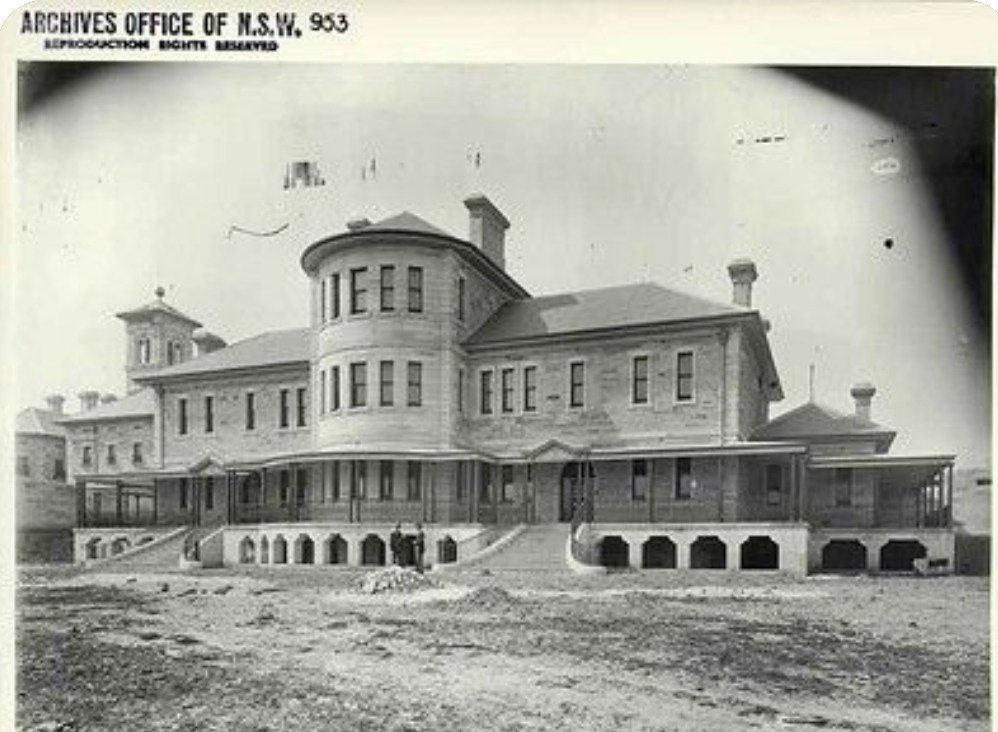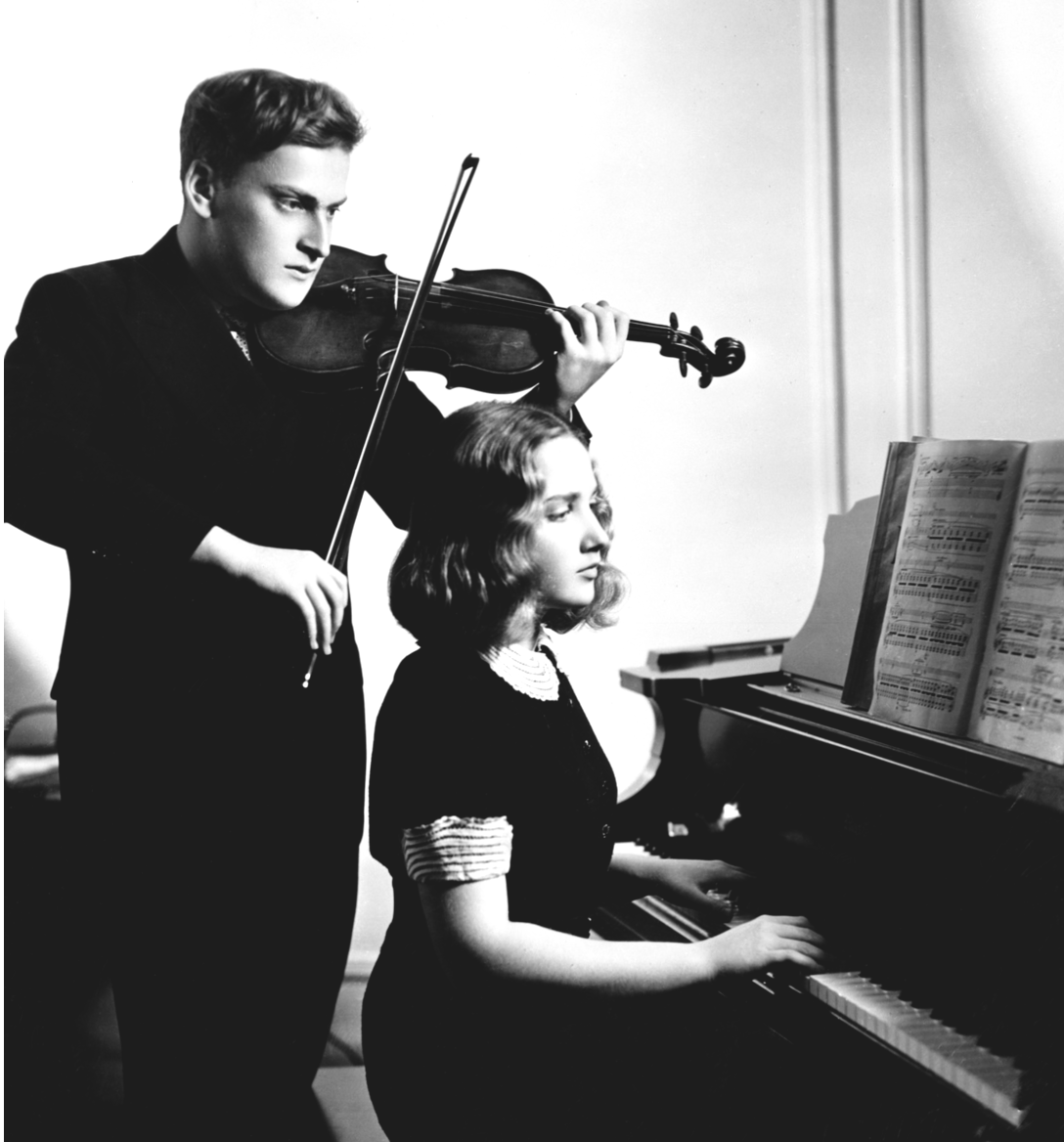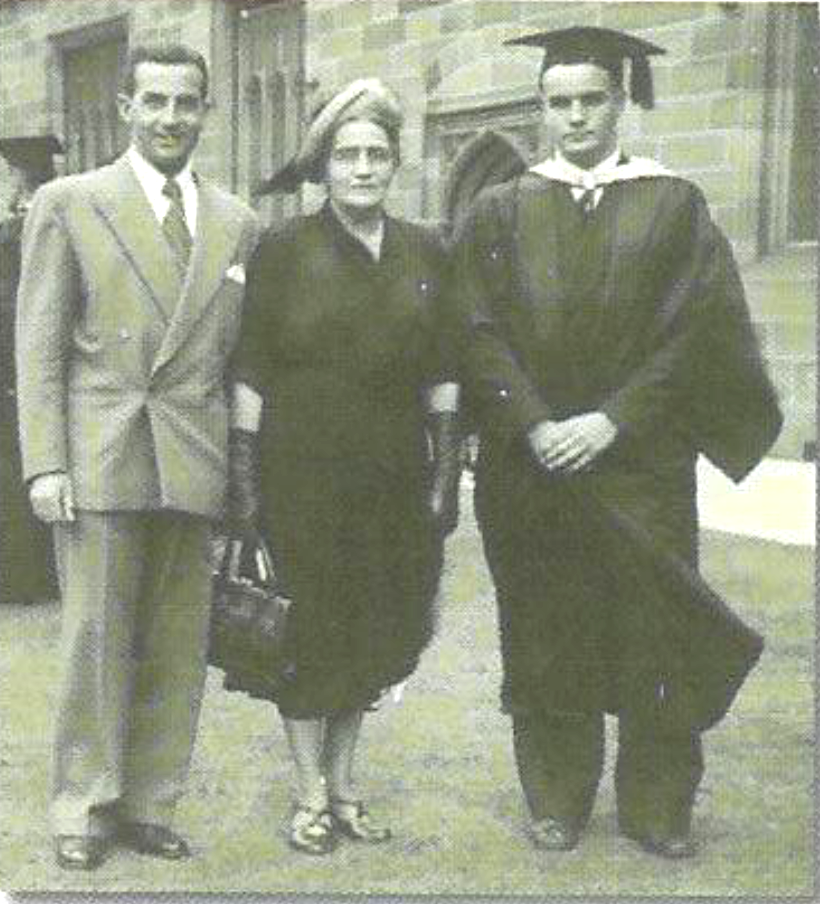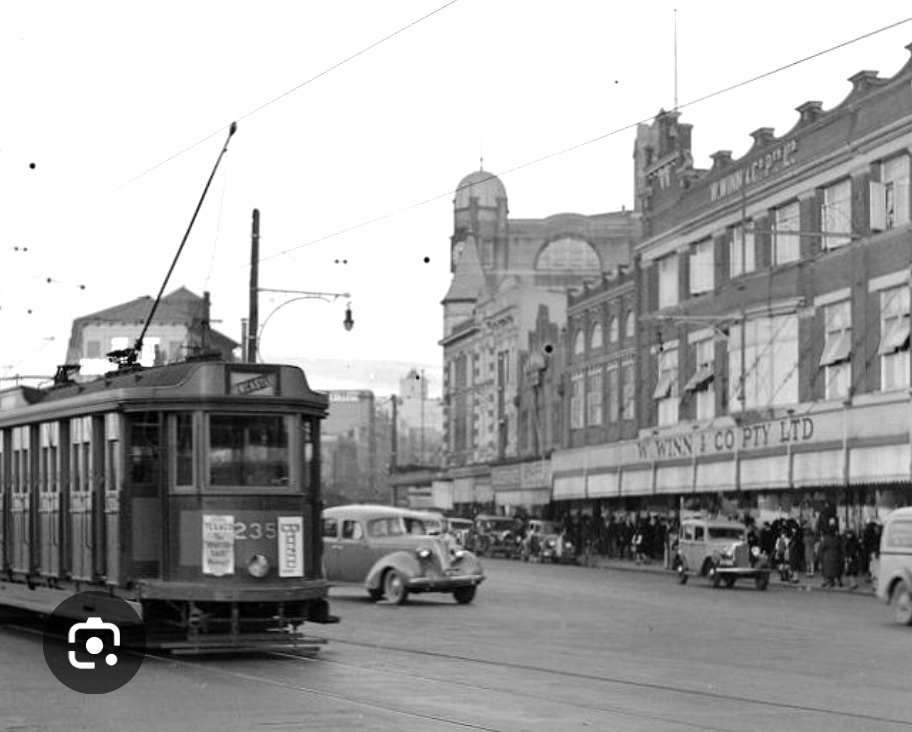
The seed of Flourish Australia’s empathetic, person-centred approach is planted
Breaking ground at a time when mental illness was taboo, a small group of compassionate family members come together at Sydney’s Callan Park (The Rozelle Hospital, pictured circa 1884) to help loved ones transition well from hospitalisation to living independently in their community. This was the beginning of PRA, the first of our two foundation stones.

1954 – Humble Beginnings with a social focus
We started out as a volunteer-run social club in a modest hall at Callahan Park. Founder Richard Hauser, a self-help advocate, and his wife Hephzibah Menuhin, a concert pianist, welcomed patients preparing for discharge, and their families, to connect through music and build confidence for re-entering community life.
It was an important first step toward turning desperation to hope for people feeling isolated from a society that didn’t understand or want to talk about mental health issues.
Monumental reforms gained momentum in the background throughout the 50’s, including the advent of medications and a movement to de-institutionalise mental hospitals.

1955 – Our organisation takes shape
More was needed. Psychiatric patients did not have the right to a pension or other social security benefits in the 50’s, so we founded a not-for-profit rehabilitation service to bridge the gap in opportunities.
A wide range of practical services was pioneered from a philosophy of self-help and personal empowerment. This included a sheltered workshop to provide supported employment pathways, inroads to accommodation, walk-in centres and other psychosocial supports.
FUN FACT: Our organisation was formally incorporated in the same year as the 1956 Olympic Games in Melbourne.

1957 – No place for loneliness
Mindful that loneliness could lead to relapse, our services branched out with a City Club to make participation more accessible for all, including a growing number of migrants from Eastern Europe.
Socially aware Sydney Businessman G.W.Winn offered the cafeteria of his landmark Winns Department Store on Oxford Street for weekly club gatherings.
We ran workshops from 1959 to raise mental health awareness, along with essential funds, introducing a widely respected informal link between hospital, former patients and the community.